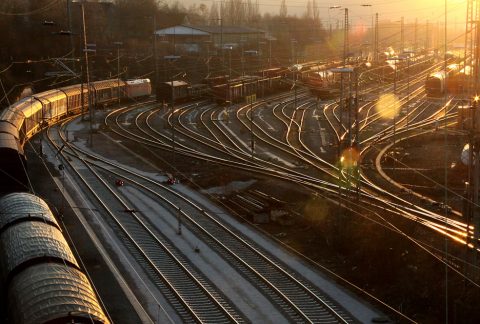British infrastructure agency running out of money says leaked report

A leaked report has said there is not enough money to do more than make do and mend for the next five years, and Britain will have to live with a rising tide of unplanned repairs and failures. `The report is more revealing than the outgoing agency Network Rail may have liked, and it is certainly embarrassing for the UK government as they prepare to supersede the management of the British network with the even wider-ranging Great British Railways.
The standard at which Network Rail will be able to operate, maintain and renew the rail network across Great Britain is set to fall. As leaked documents have revealed, standards will fall below current levels during the next five-year funding period. Network Rail has admitted within the organisation that it will have to accept short-term lower-cost fixes that will lead to additional costs in later funding periods. That’s the unwelcome legacy for the incoming Great British Railways and a state of affairs that has drawn savage criticism from the political opposition.
More unplanned incidents
A leaked presentation to Network Rail senior staff, which British media sources have seen, says that the condition of infrastructure across the British network is in jeopardy. The legacy of Britain’s pioneering railway development has left much of the network running on infrastructure that is over a century old, including tracks, bridges and especially earthworks. The report says the condition of those historical assets is expected to worsen as Network Rail’s funding will not cover the rising costs.

The outlook for the future is a picture of increasing delays and maintenance issues, reducing the network’s reliability. There’s an admission of an expectation of more unplanned incidents like the current bridge failure in Oxfordshire, which has severely disrupted a critical freight spine and left passengers stranded. The leaked report follows in the wake of trades unions claiming the UK government is practising managed decline of the national rail network, echoing the state of affairs seen in the latter decades of the twentieth century.
Fewer repairs and preventative maintenance
Last year, the government-appointed watchdog, the Office of Rail and Road, flagged up concerns over the amount of maintenance work that Network Rail needed to do before the end of the current five-year funding period, called Control Period 6 (CP6). ORR warned that the ramifications would likely impact its funding and delivery abilities for CP7. The management board of Network Rail has also expressed concern about how inflation would affect funding. The government has allocated 27.5 billion pounds (around 32 billion euros) for Control Period 7 (CP7), which runs from 2024 to 2029, and NR will be expected to generate 16.5 billion pounds (about 19 billion euros) from its own income, making 44 billion pounds (over 50 billion euro) available for the management of the railways over the next five years. Even though that is a slight increase in the current period, Network Rail’s confidential report says it will be able to do fewer repairs and preventative maintenance over the next five years.

Behind closed doors, Network Rail has said insufficient funding will lead to higher costs overall. The agency expects to be required to repair outdated infrastructure repeatedly when a replacement might be cheaper in the long term. The signalling failure at Waterloo station in London last week was traced to ageing cabling, which may be the sort of incident that will become more frequent in the future. Network Rail says it still expects to be able to run a safe railway. However, the leaked presentation explicitly states that the lack of funding now will actually lead to higher costs, as the “constrained level of expenditure” will see more “short-term lower-cost fixes” that will lead to “additional costs in later control periods”. That has already drawn outraged comments from political opponents of the government. Unsurprisingly the opposition Labour Party socialists have called the funding level “shortsighted”.
You just read one of our premium articles free of charge
Want full access? Take advantage of our exclusive offer




